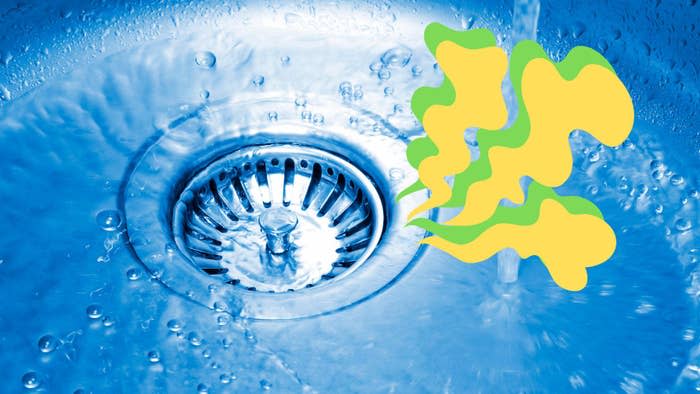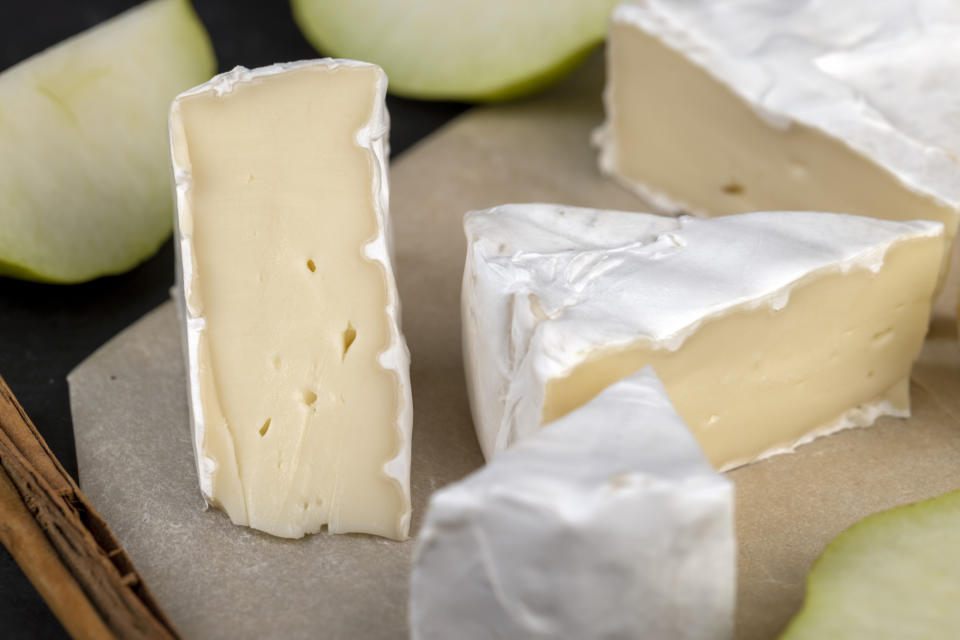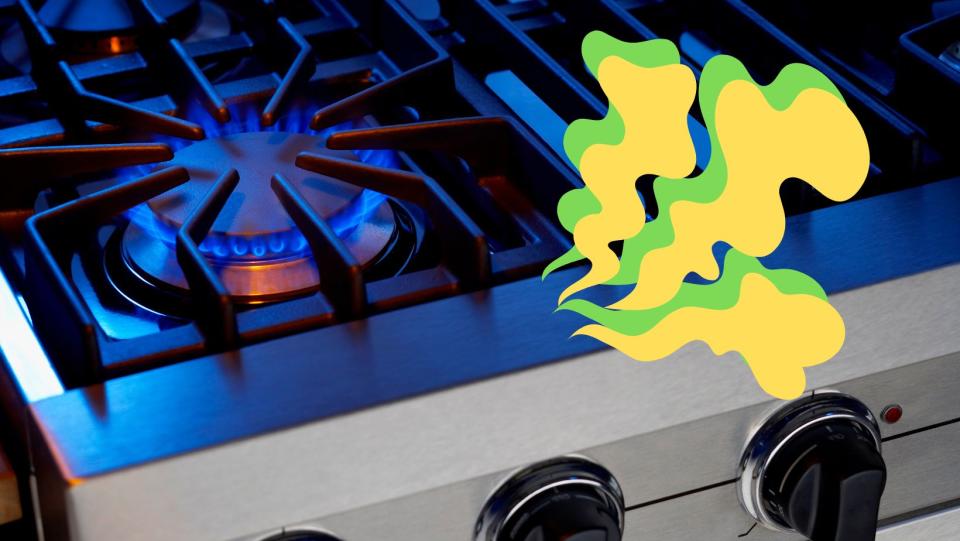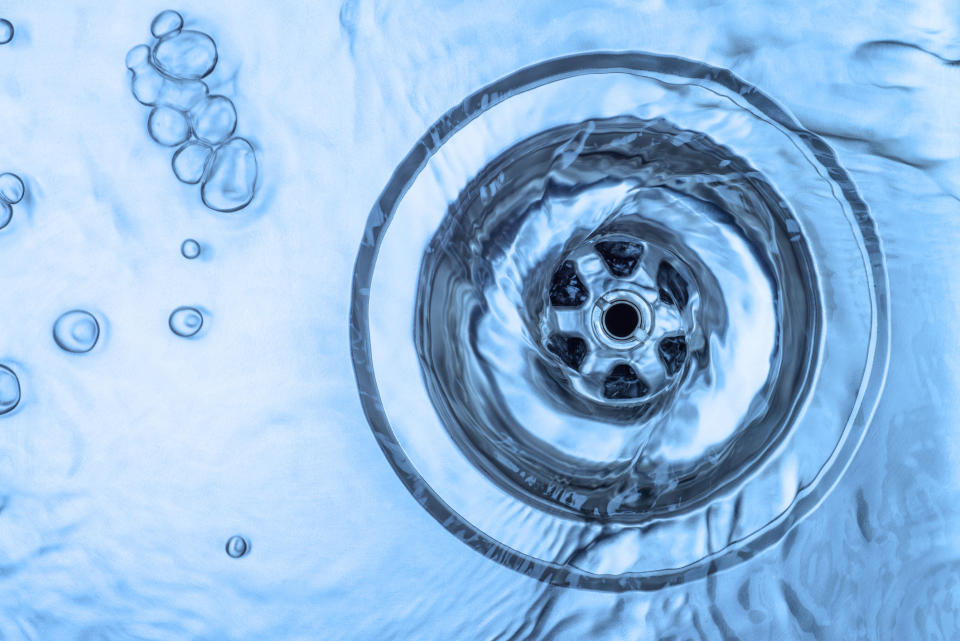"It May Not Be Your Fridge, But Your Drain" — Experts Are Sharing The Kitchen Smells You Should Be Concerned About

Kitchens are inherently smelly areas. Whether in the midst of cooking, preparing to empty out the fridge, or simply getting ready to clean up after having made dinner, you are likely smelling something in your kitchen.
Given all that, it’s important to note when a smell should be cause for concern.
We spoke to experts about which odors could indicate that your food isn’t safe to eat, which ones can signal that the safety of your home is in danger, and which mean it might be time for an appliance upgrade. And even better, we got tips on how to eliminate those odors.
Rule No. 1: Not all cheese is supposed to smell.

When dealing with leftovers, or even fresh produce or meat products, one rule tops them all: If it smells bad, throw it out. When it comes to cheeses, though, a food that’s inherently smelly, the guidelines aren’t as straightforward.
According to chef Kevin Ashton, the culinary adviser at Restaurantji, there are three ways to determine whether cheese has gone bad: the presence of abnormal mold, a change in color, or a strong smell. He notes that identifying a bad smell is the best way to determine whether cheese is safe for consumption.
“If a mild cheese such as American or Jack smells strong like Limburger or blue cheese, you should throw it away,” Ashton explained. “Naturally pungent cheeses like Camembert will have a relatively strong ammonia smell when they go bad.”
Overall, Ashton says, if you are familiar with the scent of a specific cheese and the one you have smells “like a more concentrated version of what you’re used to,” then you should avoid eating it. But why, exactly? Well ...
“Spoiled cheese can harbor different types of foodborne bacteria, each of which can cause specific illnesses,” Ashton explained, specifically mentioning salmonella, E. coli and Listeria monocytogenes.
Each bacteria may lead to different issues. Salmonella infections, for example, are “characterized by abdominal cramps, vomiting, diarrhea and fever,” he said. These symptoms aren’t immediate but can take between six hours and six days to show up. They may last up to a week.
“Escherichia coli can cause various forms of gastroenteritis, including hemolytic uremic syndrome (HUS),” Ashton added. Symptoms of such illnesses include bloody diarrhea, stomach cramps and vomiting. In extreme cases, they may lead to kidney failure. Ashton says young children and older people are most at risk when it comes to E. coli.
Pregnant women, newborns and the immunocompromised, on the other hand, are the category of people susceptible to listeriosis, which is caused by Listeria monocytogenes. “Symptoms include nausea, muscle aches, fever and diarrhea,” Ashton said. All things we’d rather avoid!
Rule No. 2: If it smells like gas but there’s no fire, call the authorities.

According to energy company ConEdison, if you smell an odor that is similar to rotten eggs or gas in your home, you should leave and call the authorities — particularly if you have a gas stove or oven in your kitchen.
“The reason for quick action is the possibility of a gas leak, which is always dangerous and can be life-threatening,” said Hendrik Van De Poll, co-owner of Service Force Plumbing in Rockville, Maryland.
Keep in mind, though, that if you smell gas but your stove’s burner is on, the odor might actually be nothing to worry about, especially if it seems to be fading away.
Usually, the presence of a flame indicates that the gas is being burned. However, the smell could suggest a potential leak in the system. ConEdison advises turning off the burner, ventilating the area, checking for leaks and, of course, calling a professional no matter what.
There might be other culprits behind the odor as well.
“Another more innocuous reason for a rotten egg smell is sometimes the anode rod in your water heater reacting with the water from incoming city or well water connection,” Van De Poll said. If that’s the case, he suggests replacing the standard anode rod with an aluminum-zinc one that “does not have the same type of reactivity.”
Rule No. 3: Check your kitchen drain.

Sometimes, the unpleasant food-like odor may not emanate from your fridge but your kitchen drain. This usually happens as a result of a buildup of food particles, grease and other debris.
“Food particles that accumulate in the kitchen drain will eventually turn into a clog if not addressed promptly,” explained Justin Cornforth, owner of Ace Plumbing in Anderson, South Carolina. “The smells coming from the kitchen drain indicate that it’s time to do thorough drain cleaning, which typically involves using an enzymatic drain cleaner. Enzymatic drain cleaner are effective and safe for pipes compared to off-the-shelf cleaners that contain harsh chemicals.”
If you avoid using chemicals and enzymatic cleaners in your kitchen, you can pour some vinegar and baking soda into the drain, let it sit for a few minutes or even overnight, and then follow it with a pan of boiled water, Cornforth outlined. The process may work well as a preventive measure, dissolving minor clogs and buildup on the walls of a drain, so you might want to go through the process once a week.
That said, Cornforth warned that bigger clogs might require more than the vinegar and baking soda mixture.
If you just can’t seem to get rid of the odor, you might want to consider removing the drain completely and replacing it with a new one. “If the odors are caused by severe clogs or extensive buildup, cleaning products won’t help because they cannot penetrate or dissolve the thick layers of accumulated debris and decaying organic matter,” Cornforth said. He warns against trying your hand at the installation yourself, though. It’s best to reach out to a professional before doing anything.
How to ward off kitchen odors before they get bad.

The more you leave an unpleasant odor unattended, the harder it will be to find the source and get rid of it.
Cesar Fernandez, the culinary manager at Miele Great Britain, has a few tips to keep in mind.
When dealing with food-adjacent stenches — whether post-cooking or related to cheese gone bad, for example — it’s important to note that neutral odors can overtake stronger ones.
“So, if you’ve finished cooking and you want to get rid of the smell, simple actions such as boiling water with some lemon or white wine vinegar or freshly brewing coffee will remove any other smells,” he said.
Lemon is your friend even when trying to clean out an actually smelly kitchen device or product.
“If you’ve used your microwave and there was a little accident with food splattering all over or even leaving a lingering smell if food had a strong smell, the only thing that you need to do is to place half a lemon with a little water in a bowl and microwave on a high setting for a few minutes,” Fernandez said. “Then, leave the door closed for at least 10 minutes, and afterward your microwave will smell like new all over again.”
Overall, though, Fernandez says, the most reliable way to avoid a smelly kitchen is the use of a proper cooker hood.
“It’s very important that the ducting is the right one when maximizing for efficiency,” he said.
Clearly, it might be time for us to change some of our kitchen routines and gadgets.This article originally appeared on HuffPost.


